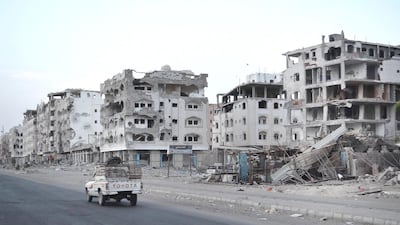International policymakers involved in state-building and development in Iraq and Yemen should take a fresh look at their approach to those conflicts, a report by the UK-based Chatham House think tank has said.
The report, titled Between Order and Chaos: A New Approach to Stalled State Transformations in Iraq and Yemen, recommends that policymakers adopt a new approach that aims to strengthen the connection between the bureaucracy and the de facto authorities in the two countries.
Policymakers were also urged to “reframe their involvement” in the two countries and play the role of a “referee”.
The report also criticises intervening powers for backing unpopular political settlements.
Peter Salisbury, a senior consulting fellow at Chatham House, who co-authored the report alongside Renad Mansour, said: “What is innovative about this report is that it really focuses on understanding who actually does things on the ground in Iraq and Yemen and this is what policymakers need to move towards”.
Mr Salisbury explained that policymakers should shift towards “building a policy around those who do, rather than those who should do”.
The report suggests that at times, international policymakers have contributed to the cycles of violent conflict and instability in Iraq and Yemen by stalling efforts to rebuilding and resisting emerging leaders.
States like Iraq and Yemen, the paper argues, are wrongly interpreted by policymakers as being “entirely chaotic”.
Instead, the paper suggests that all states lie on spectrum of stability and instability.
The paper suggests though they may appear dysfunctional, states like Iraq and Yemen contain “pockets of order”.
A survey conducted by Chatham House found that most Iraqis believe a leader should be chosen through free and fair elections.

